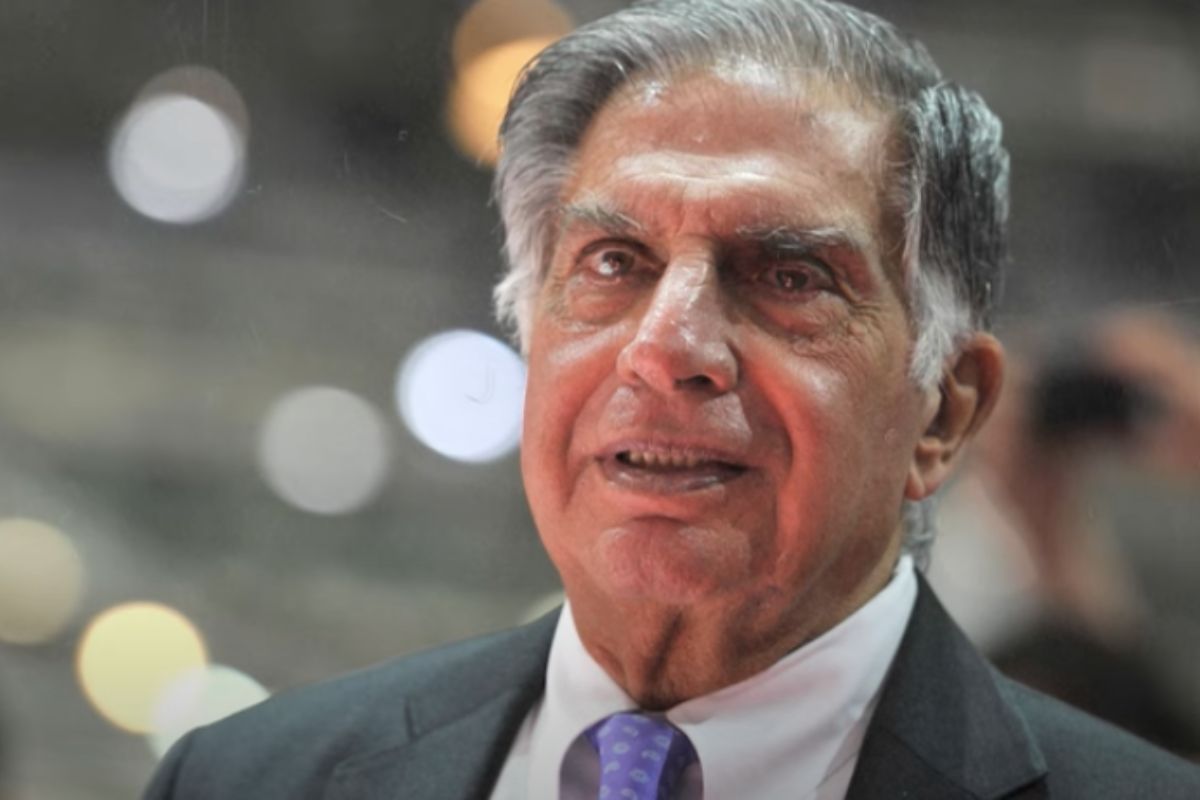Ratan Tata, the reserved yet influential Indian industrialist who transformed his family’s sprawling business house into a global powerhouse while maintaining its reputation for ethical leadership and philanthropy, died on Wednesday in Mumbai. He was 86.
The Tata Group announced his death in a statement. Tata, who never married, had been receiving treatment in a critical care unit, according to Reuters.
Empire builder
During his 21-year tenure as chairman from 1991 to 2012, Tata dramatically expanded the reach of his family’s 156-year-old conglomerate, increasing profits fifty-fold and orchestrating a series of headline-making international acquisitions. Under his guidance, the group evolved from an Indian industrial giant into a global corporation with instantly recognizable brands like Jaguar, Land Rover, and Tetley tea.
For middle-class Indians, the Tata Group’s presence was inescapable in daily life. From morning tea to evening television, from internet services to automobiles, the conglomerate’s products and services were woven into the fabric of Indian society. Yet Tata himself remained an intensely private figure, known for his quiet demeanour and dedication to philanthropy. He led a subdued social life, but devoted much of his leisure time to driving sports cars, piloting planes and racing his speedboat out of the harbour near an apartment he kept in Mumbai, said the New York Times.
Privileged childhood
Born on December 28, 1937, in Mumbai, Ratan Naval Tata grew up in an atmosphere of immense privilege tempered by family complications. His parents, Naval and Sooni Tata, divorced when he was young, an
d he and his younger brother Jimmy were raised by their paternal grandmother in the palatial Tata Palace, complete with a staff of 50 servants and Rolls-Royce rides to school.
Despite his family’s wealth, Tata faced personal challenges. In a 2020 Facebook interview, he recalled experiencing “ragging and personal discomfort” due to his parents’ divorce, which was uncommon at the time. These experiences perhaps contributed to his lifelong reserved nature and his focus on business and philanthropy rather than social life.
American education
After attending elite schools in Mumbai and Shimla, Tata completed his high school graduation from Riverdale Country School in New York. Subsequently, he graduated from Cornell University with a bachelor’s degree in architecture and later took management courses at Harvard Business School. He joined the family business in 1962, starting on the shop floor of Tata Steel and working his way up through various management positions.
His ascension to the chairmanship in 1991, succeeding JRD Tata, was met with resistance from family members and executives. Undeterred, Tata consolidated his leadership by retiring older executives with generous pensions. He then embarked on an ambitious globalization strategy, acquiring iconic British brands like Jaguar, Tetley, and Corus Steel.
At home, he captured the nation’s imagination with the launch of the Tata Nano in 2008, marketed as the world’s cheapest car at $2,200 and aimed at making automobile ownership accessible to middle-class Indians.
The twilight of his career was marked by controversy when, in 2016, he orchestrated the ouster of his chosen successor, Cyrus Mistry, leading to a protracted legal battle that finally concluded in 2021 with India’s Supreme Court affirming the legality of Mistry’s dismissal.
Generous philanthropist
In his later years, Tata focused on philanthropy and fostering entrepreneurship, backing more than 50 Indian startups. He was particularly fond of Goodfellows, a venture promoting intergenerational friendships. At its launch in 2022, he poignantly observed, “You don’t mind getting old until you get old, and you find it’s a difficult world.”
His philanthropy included multimillion-dollar donations to the University of California, San Diego, and his alma maters, Harvard Business School and Cornell, where he gave funds for scholarships to Indian students.
His passing leaves a vacuum at the powerful Tata Trusts, a collective of charities that Tata led since stepping down as group chairman in 2012. These philanthropic trusts, which exercise control over the Tata group through their 66 per stake in the holding company Tata Sons Pvt., have traditionally been led by a member of the Tata family, says Bloomberg.
The Tata Group’s unique ownership structure, with two-thirds controlled by philanthropic trusts, reflected the family’s longstanding commitment to social welfare, dating back to its founder, Jamsetji Tata. Tata upheld this tradition, disbursing much of his personal fortune to education, health, and agricultural projects for disadvantaged Indians.
He never married and had no children. He is survived by his stepmother, Simone; his younger brother, Jimmy; a half brother, Noel; and two half sisters, Shireen and Deanna Jejeebhoy.
Love for dogs
Tata was an animal lover. “My love for dogs as pets is ever strong and will continue for as long as I live,” he said in a 2021 interview.
“There is an indescribable sadness every time one of my pets passes away, and I resolve I cannot go through another parting of that nature. And yet, two-three years down the road, my home becomes too empty and too quiet for me to live without them, so there is another dog that gets my affection and attention, just like the last one.”
Tata’s legacy extends far beyond the balance sheets of his business empire. He exemplified a model of corporate leadership that balanced profit with purpose, global ambition with national pride, and personal reticence with public responsibility. In an era of flamboyant billionaires, he remained esteemed for his demeanour, his vision and his philanthropy.






